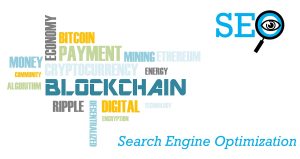If you are confused about the difference between SEO and SEM, don’t worry, you are not alone. Many business owners don’t understand the difference between these two terms. In this blog post, we will explain the difference between SEO and SEM and help you decide which one is right for your business.
What is SEO?
Search engine optimization (SEO) is the process of optimizing your website for Google search with the goal of earning higher web traffic levels and improving your overall visibility in the search engine results pages (SERPs).
The main aim of SEO is to improve your ranking in the organic, or unpaid, search results.
To do this, SEO experts use a variety of tactics, including on-page optimization (such as keyword research and target audience analysis), off-page optimization (such as link building and backlinking), and technical SEO (which includes things like site speed and mobile friendliness).
What is SEM?
Search engine marketing (SEM) is a form of online marketing that improves your visibility in paid search results.
SEM involves using Google Ads (formerly known as Google AdWords) to bid on keywords and phrases that are relevant to your business, in order to appear higher up in the SERPs. This method also allows you to target specific audiences, such as people who have visited your website before or who are located in a certain geographic area.
Pros of SEO
In order to help you decide whether SEO or SEM is right for your business, let’s take a look at a few of the pros of search engine optimization.
Pro #1: SEO is a Long-Term Strategy
One of the biggest advantages of SEO is that it is a long-term strategy. Unlike paid search ads, which stop appearing as soon as you stop paying for them, a well-optimized website will continue to earn traffic and improve in ranking even after you stop working on it.
This is because SEO focuses on improving your website’s overall quality and authority, which are factors that Google takes into account when determining where to rank your site.
Pro #2: SEO is Cost-Effective
Another big advantage of SEO is that it is a very cost-effective marketing strategy. With SEO, you can earn organic traffic without spending any money on paid ads.
Of course, this doesn’t mean that SEO is free – it does take time and effort to improve your website’s ranking. However, the ROI (return on investment) of SEO is often much higher than that of paid search ads.
Pro #3: SEO Provides Valuable Insights
Another pro of SEO is that it can provide valuable insights into your target audience and their needs. By analyzing your website’s traffic and the keywords that people are using to find your site, you can learn a lot about who your customers are and what they are looking for.
This information can be extremely valuable as you develop other marketing strategies, such as content marketing or product development.
Cons of SEO
Of course, there are also a few disadvantages of SEO that you should be aware of before deciding whether it is the right marketing strategy for your business.
Con #1: SEO Takes Time to Show Results
One of the biggest disadvantages of SEO is that it can take a long time to show results. Unlike paid search ads, which can start generating traffic immediately, it can take months or even years to see the full benefits of your SEO efforts.
This is because Google takes into account factors like the quality and authority of your website when determining where to rank it, and these things take time to build up.
Con #2: It Can Be Difficult to Measure ROI
Another disadvantage of SEO is that it can be difficult to measure the return on investment (ROI). Because SEO is a long-term strategy, it can be hard to tell how much of an impact it is having on your business in the short term.
However, there are a few ways to measure the ROI of your SEO efforts, such as by tracking the organic traffic to your website or by looking at your website’s position in the SERPs.
Con #3: You Need to Stay Up to Date with Google’s Algorithm
Finally, one more disadvantage of SEO is that you need to stay up to date with Google’s algorithm. This can be a challenge, as Google is constantly changing its algorithm and adding new features.
However, it is important to keep up with these changes, as they can impact your website’s ranking. The good news is that there are plenty of resources out there (such as Moz) that can help you stay up to date with the latest algorithm changes.
Pros of SEM
Similar to SEO, SEM also has a few advantages that make it an attractive marketing strategy for businesses.
Pro #1: SEM is Fast
One of the biggest pros of SEM is that it is a fast way to generate traffic. Unlike SEO, which can take months or even years to show results, paid search ads can start generating traffic immediately.
This makes SEM an ideal marketing strategy if you need to quickly generate leads or sales.
Pro #2: You Can Measure Results Easily
Another big advantage of SEM is that it is very easy to measure the results of your campaigns. With most paid advertising platforms (such as Google AdWords), you can see how many clicks and impressions your ads are getting, as well as how much money you are spending.
This makes it easy to track your ROI and adjust your campaigns as needed.
Cons of SEM
Don’t be fooled – SEM may have a few advantages, but there are also a few disadvantages that you should be aware of before deciding whether it is the right marketing strategy for your business.
Con #1: SEM Can Be Expensive
One of the biggest disadvantages of SEM is that it can be quite expensive. The cost of paid search ads depends on a number of factors, such as the keywords you are bidding on and the competition in your industry. Plus, if you don’t know exactly how to manage your paid advertising campaigns, you could be making a number of serious mistakes that could be costing you lots of money, according to Moz.
However, because SEM is a pay-per-click (PPC) advertising model, you will always need to spend money to generate traffic.
Con #2: You Need to Constantly Monitor Your Campaigns
Another disadvantage of using SEM to market your business is that you need to constantly monitor your campaigns. This is because the cost of paid search ads can quickly spiral out of control if you are not careful.
To avoid this, you need to regularly check your campaigns to make sure that you are not spending more than you can afford.
Con #3: SEM Can Be Difficult to Do Yourself
Finally, one more disadvantage of using SEM to market your business is that it can be quite difficult to do yourself. If you don’t have experience with paid advertising, it can be easy to make mistakes that will cost you a lot of money.
Therefore, unless you are confident in your ability to manage an SEM campaign, it may be best to hire someone who specializes in this type of marketing.
SEO vs. SEM: Which Is Right for Your Business?
Now that you know of the pros and cons of both SEO and SEM, it’s time to decide which is right for your business.
If you need to generate traffic quickly or if you have a limited budget, SEM may be the better option for you. However, if you are looking for a long-term marketing strategy or if you want to build up your brand awareness, SEO may be a better choice.
No matter which route you decide to go down, remember that both SEO and SEM can be effective marketing strategies – it just depends on what your goals are.




